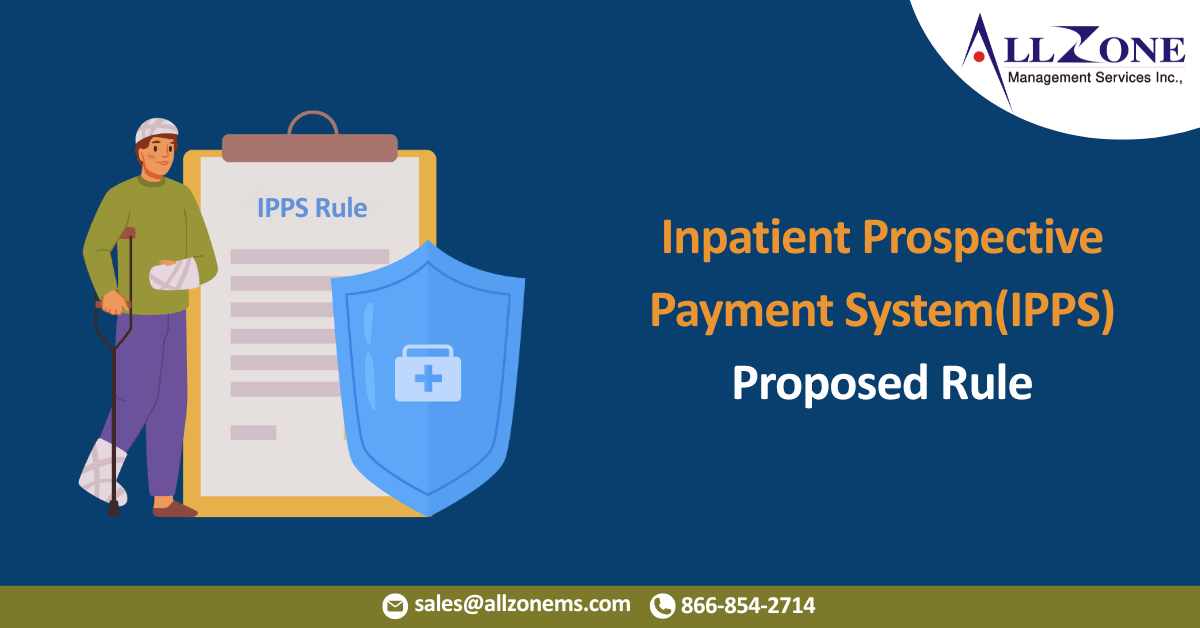The Centers for Medicare & Medicaid Services (CMS) has unveiled its Fiscal Year (FY) 2026 IPPS Proposed Rule, which outlines significant updates to three key Medicare hospital quality initiatives: the Hospital-Acquired Condition (HAC) Reduction Program, the Hospital Readmissions Reduction Program (HRRP), and the Hospital Value-Based Purchasing (VBP) Program.
These proposed changes, outlined in the IPPS Proposed Rule, signal CMS’s ongoing commitment to strengthening accountability, broadening data inclusion, and ensuring quality measures remain relevant in a changing healthcare environment. With a growing emphasis on value-based care and health equity, CMS aims to better align these programs with actual performance and patient demographics. What follows is a detailed examination of the proposed modifications and their potential effects on hospitals and health systems.
Hospital Readmissions Reduction Program (HRRP): Modernizing for Inclusivity and Relevance
The HRRP, established under the Affordable Care Act, penalizes hospitals with high readmission rates for specific conditions. The FY 2026 proposed rule introduces substantial changes aimed at modernizing the program’s scope and fairness.
Key Proposed Changes:
- Incorporating Medicare Advantage (MA) Beneficiaries: For the first time, all six HRRP condition-specific readmission measures will include data from MA beneficiaries. This change acknowledges the significant growth of MA enrollment, which exceeded 50 percent of the Medicare population in 2024, making the program more representative of overall Medicare hospital utilization.
- Eliminating COVID-19 Exclusions: CMS proposes removing the exclusion of patients with a COVID-19 diagnosis from the denominator of all six measures, indicating a shift away from pandemic-era policies and a return to standard performance measurement.
- Shortening the Measurement Period: The performance period will be reduced from three years to two. This adjustment aims to provide more current insights and enable hospitals to respond more effectively to recent performance data.
- Refining the Payment Adjustment Formula: To account for the inclusion of MA data, CMS will revise the excess readmission ratio and base DRG payment calculations, ensuring financial penalties (or rewards) more accurately reflect the total patient population served.
- Formalizing the Extraordinary Circumstances Exception (ECE) Policy: CMS proposes adding regulatory language to officially codify its authority to grant deadline extensions for data submission when hospitals are impacted by extraordinary events, offering administrative flexibility during crises.
Operational Implications:
Hospitals will need to update their data systems to capture and report data for MA beneficiaries, which may necessitate collaboration with MA plans. The shorter measurement period will also create a more immediate feedback loop for quality improvement efforts.
Hospital-Acquired Condition (HAC) Reduction Program: Technical and Administrative Updates
The HAC Reduction Program, which reduces Medicare payments for hospitals in the lowest quartile based on HAC rates, will undergo more targeted but important updates in FY 2026.
Key Proposed Changes:
- Baseline Updates to HAI Measures: CMS will implement technical baseline updates to the five National Healthcare Safety Network (NHSN) Healthcare-Associated Infection (HAI) measures, enhancing data accuracy and consistency across reporting years.
- ECE Policy Codification: Similar to the HRRP, CMS will formalize the ECE process for the HAC program, allowing for deadline extensions during public health emergencies or natural disasters.
Financial Impact:
CMS anticipates no financial impact from these updates for FY 2027 and subsequent program years, suggesting these are operational refinements rather than fundamental program changes.
Hospital Takeaway:
While less extensive than the HRRP or VBP changes, the updated baselines underscore the importance of accurate and timely infection reporting. Infection prevention programs must align with the latest NHSN specifications.
Hospital Value-Based Purchasing (VBP) Program: Realigning Incentives with Current Measures
As CMS’s primary pay-for-performance initiative, the VBP Program adjusts hospital payments based on performance across clinical outcomes, patient experience, safety, and efficiency domains.
Key Proposed Changes:
- THA/TKA Complication Measure Update: The Total Hip and Knee Arthroplasty Complication measure will be revised starting in the FY 2033 program year to align with evolving surgical and post-acute care standards.
- Removal of COVID-19 Exclusions: Beginning in FY 2027, CMS will eliminate COVID-19 exclusions from six Clinical Outcomes domain measures, reinforcing a return to standard performance evaluation.
- Updates to NHSN HAI Measures: Starting in FY 2028, technical updates will be applied to the five NHSN HAI measures, similar to the changes in the HAC program.
- Elimination of Health Equity Adjustment: CMS proposes removing the health equity adjustment component from the VBP Program. The rationale appears to be a reevaluation of how best to incentivize and measure equity, potentially setting the stage for broader equity-focused reforms in future rules.
- Performance Standards Set Through FY 2031: CMS is proposing new and updated performance standards for program years FY 2028 through FY 2031, providing hospitals with a longer-term planning horizon.
- ECE Policy Codification: As with the other programs, CMS will codify the ECE policy here, promoting procedural consistency across programs.
Strategic Considerations:
Hospitals should begin analyzing their performance trends in light of the newly proposed standards and prepare for adjusted VBP scoring in the coming years. The removal of the health equity adjustment may prompt internal reassessment of how social determinants of health are documented and addressed, particularly if equity measures are reintroduced in future iterations.
Final Thoughts: Towards a More Inclusive and Responsive Quality Framework
The IPPS Proposed Rule from CMS represents a more mature approach to hospital quality improvement, one that incorporates a broader range of patient populations, adapts to the post-pandemic healthcare landscape, and formalizes flexibility for hospitals facing extraordinary circumstances. While the immediate financial impact of these updates may be neutral or minimal, the operational, analytical, and strategic implications are significant.
Hospitals are encouraged to take the following actions:
- Evaluate current reporting processes for the integration of Medicare Advantage data.
- Review internal timelines and workflows to align with the proposed two-year measurement period.
- Ensure infection prevention data aligns with the updated NHSN technical specifications.
- Participate in the CMS public comment process by June 10, 2025, to influence the final rule.
As CMS continues to refine its value-based programs, providers must remain adaptable, balancing data accuracy, clinical performance, and strategic planning to succeed under evolving expectations.

